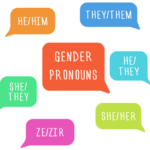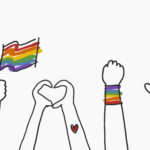School-community partnerships refer to partnerships between schools and other community resources by integrating academics and community involvement to foster the learning and well-being of youth and their families.
Is seeing believing? Can video coaching help support teacher practice in early childhood classrooms?
Attending a high-quality prekindergarten program has substantial benefits for young children, through long-term positive effects on academic achievement and physical and mental health.
Continue reading →DSC: A Proactive Approach to Positive Classroom Management in High Schools
Discipline in the Secondary Classroom (DSC) is an effective program to help high school teachers design a classroom management plan that prevents problems, fosters student engagement, teaches students to behave responsibly, and creates a positive and productive classroom environment.
Continue reading →Increasing Praise to Reprimand Ratios Under Real-World Conditions Using CW-FIT
Increase teacher use of evidence-based classroom management practices using CW-FIT. Learn about how an innovative district coaching model and online professional development system can support coaching and teacher implementation in low resource settings.
Continue reading →Using Implementation Supports to Enhance Sustainability and Scalability of CW-FIT
Implementation supports are critical to delivering effective interventions. Learn about how a district coaching model and online professional development system supported sustainability, scalability, and positive student outcomes for CW-FIT.
Continue reading →Supporting LGBTQIA+ Students and Staff: Creating Safe and Affirming Spaces
We encourage school communities to create and maintain a culture of safety of expression for all students and staff, particularly those who identify as LGBTQIA+.
Continue reading →Using Mixed Methods to Evaluate Cultural Responsiveness of Behavioral Interventions: A Case Example from Early Childhood
Given increasing cultural diversity and disparities in outcomes, the need to evaluate the cultural responsiveness is greater than ever.
Continue reading →Effects of the Tools for Getting Along Curriculum on teachers’ reports of elementary students’ executive functions, social-emotional skills, and behavior problems
In this study, we examined the effectiveness of Tools for Getting Along (TFGA) on teachers’ reports of executive functioning (EF), social-emotional, and behavioral skills of elementary school students. TFGA is a classroom-level prevention curriculum that teaches students problem-solving steps to apply in emotionally charged situations.
Continue reading →Supporting LGBTQIA+ Students and Staff: The Power of Pronouns
Although pronouns, grammatically, may be small words that make it easier to refer to ourselves and others, they can carry large significance and meaning.
Continue reading →Supporting LGBTQIA+ Students and Staff: Glossary of Terms
In celebration of LGBTQIA+ History Month (October) and the contributions and achievements of the LGBTQIA+ community, we encourage school communities to create and maintain a culture of safety of expression for all students.
Continue reading →The Coach Experience: Impacts and Scalability of a Behavioral Intervention Coaching Program
We are conducting a cluster randomized control trial (RCT) to examine the effects of the BEST in CLASS training and coaching relative to a business-as-usual control. In addition, we are conducting coach focus groups to understand implementation of the Tier 2 training and PBC intervention strategies under routine conditions where ...
Continue reading →




